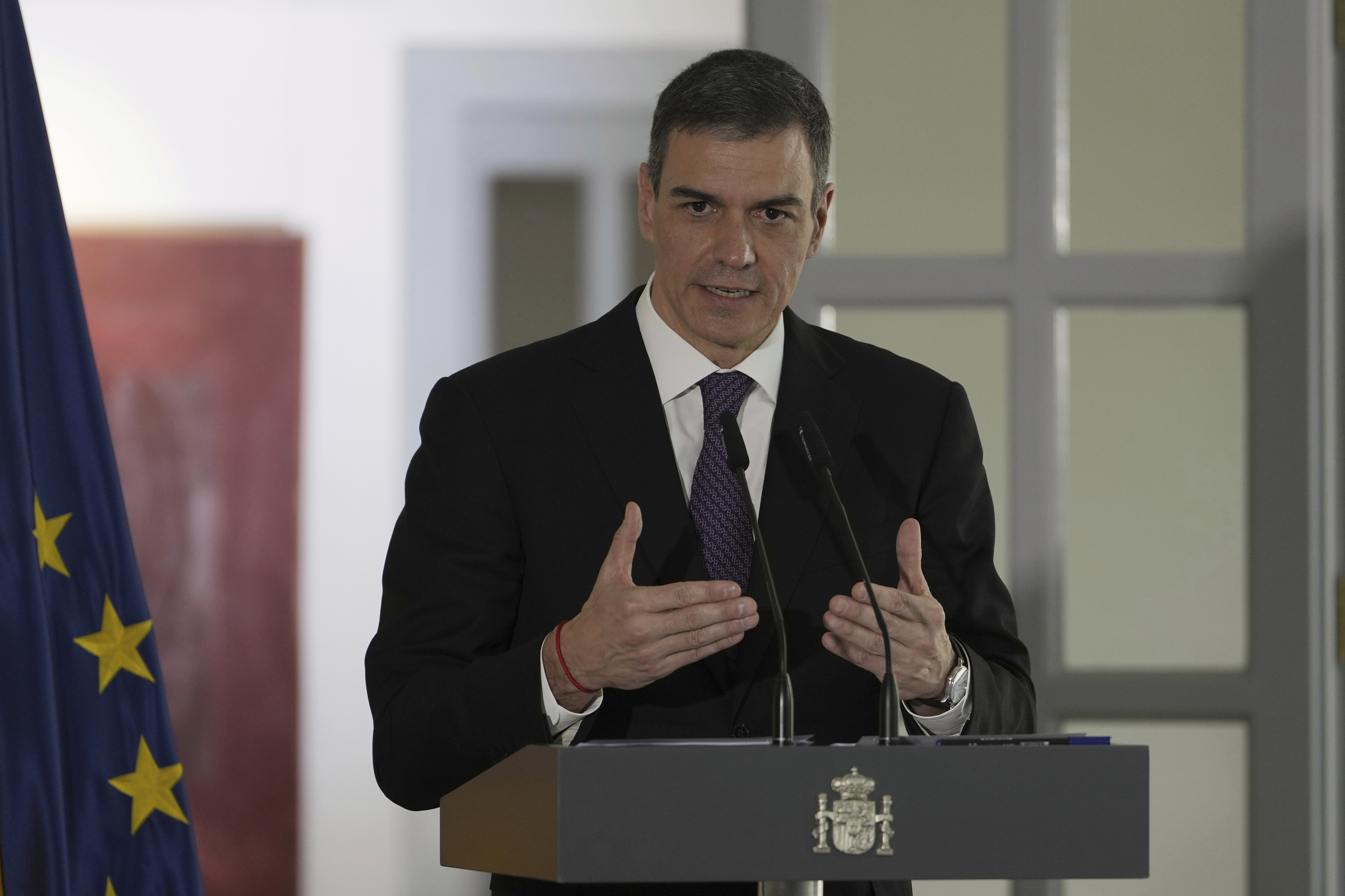The letter sent by the President of the Government, Pedro Sánchez, to Mark Rutte on Thursday officially rejecting investing more than 2% of the Gross Domestic Product (GDP) in Defense is a real challenge. Not only to the North Atlantic Treaty Organization (NATO) itself, but also to the European Commission, which has been emphasizing for months that the two percent figure is totally insufficient and needs to be significantly increased. This confrontation with everyone and everything is equally disturbing and alarming to both institutions.
"Clearly, it is a bad signal of disunity right before the NATO summit next week in The Hague," say EU sources, who also believe that accepting the 5% target that Secretary-General Rutte will propose and then not meeting it would not be helpful. "Basically, what has happened since Wales in 2014, where they took more than a decade to reach 2%," they add.
Because Brussels, as made very clear by President Von der Leyen, Defense Commissioner Andrius Kubilius, and EU Foreign Affairs Chief Kaja Kallas, believes that the Russian threat is very real. That Vladimir Putin could launch an attack against a European Union country in the next five years, making rapid, firm, and united rearmament essential. This is the opposite of what Sánchez argues.
Accepting the target even if its fulfillment is delayed, which is what countries like Italy will most likely do and is seen as insufficient from Brussels, would avoid the confrontation that will undoubtedly occur at the Alliance summit. Or perhaps accepting a negotiation on spending criteria; trying to extend compliance deadlines and extend them beyond 2032, which currently seems more likely; or any other gesture that demonstrates a real interest. "Because if Spain maintains this position, it will open Pandora's box as other countries may follow suit. For example, Belgium and perhaps others," summarize NATO diplomatic sources.
This is precisely what the Government argues. That more nations reject reaching 5% of GDP in military spending and oppose the 3.5% in hard spending plus 1.5% in security-related spending model proposed by Rutte. "But none have such a strong position as Spain," add the same sources, who also warn that Sánchez "is already singled out and will be even more so."
By Rutte himself, of course, by German Chancellor Friedrich Merz, by the Baltic and Nordic countries, and, of course, by the President of the United States, Donald Trump. The US has already pointed out the Government on previous occasions on this issue, and yesterday did so directly by stating that all allies "including Spain" must reach 5%, and if Sánchez arrives in the Netherlands with the same inflexible position as shown in his letter, he will undoubtedly receive a reprimand. It remains to be seen if the president dares to confront them all, especially with the "very nice man in Washington" who has little patience, as the NATO Secretary-General described the Oval Office occupant.
"Without Spain, and especially if it drags other countries, there can be no agreement. On other occasions, minor or technical issues have been agreed upon without unanimity, but for such an important point, unanimity is vital and is already spreading the perception of lack of solidarity," continue diplomatic sources.
This would be a historic failure for a summit where the foundations of future rearmament are supposed to be laid. It must adapt to the new geopolitical reality and will be focused on a single theme, so attention cannot be diverted by approving other points. It aims to please Trump so that he maintains his commitment to NATO and the defense of Europe. Sánchez's calculations in national politics pale in comparison to these objectives and could have, at the same time, disastrous consequences for the European Union and the Alliance.
